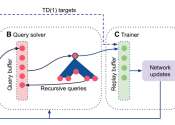Let's talk about the elephant in the data
You would not be surprised to see an elephant in the savanna or a plate in your kitchen. Based on your prior experiences and knowledge, you know that is where elephants and plates are often to be found. If you saw a mysterious ...
Jun 3, 2021
0
19









